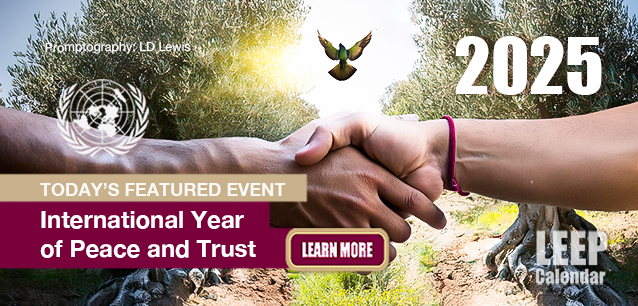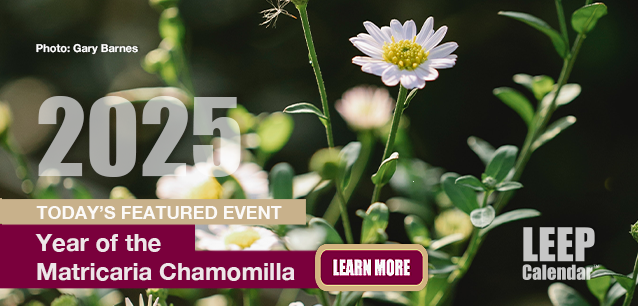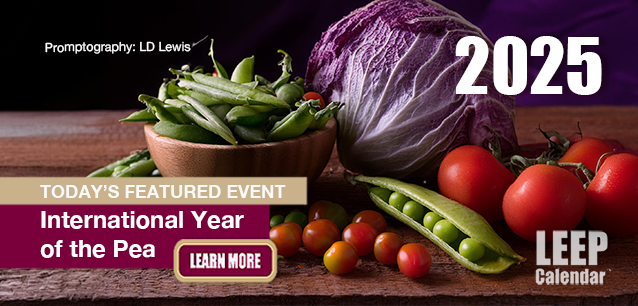 AD
AD
Today is: December 07
Scroll to explore events active on this date.
Additional Events on LEEP
LEEP INK FEATURES

August? Absolutely!
In August, we live through the Dog Days of Summer. It's hot and often humid, and those who can leave for better climates do. Down south, winter is in full force. August is also known as "the ...

In The Heat of July: July 2025 Events
Is it hot enough (or cold enough if you're below the equator) for you yet? There is actually a day for that! Like every month, I pick a diverse collection of events you may or may not know about. This ...

May Blooms: Events in May 2025
Along with October, May is one of the most densely packed months of the year. It's before the summer humidity and the last whole month of the school year. The weather is warming in t...
About International Honey Bee Day
Food
Ends: Aug 21, 2021
DESCRIPTION:
Created in 2009 with USDA backing after lobbying from American beekeepers concerned by seriously declining numbers of bees due to herbicide use, Honey Bee Day evolved into an international campaign and is now observed in many countries throughout the world.
If you grew up before the 1990s you probably remember seeing a lot of bees in the summer. They were everywhere, anywhere there were flowers. Take a walk around your neighborhood today and more likely than not, you won't see a single bee. Where did they all go?
Insecticides and other chemicals have drastically culled the population of bees and other pollinators over the past two decades. This is devastating to food production and biodiversity. Bees, butterflies, birds and bats are essential to pollination. Without it, food won't grow. International Honey Bee Day is your opportunity to learn about the effects of pesticides on nature's workers and a chance to make your home, school or workplace pollinator friendly.
VIDEOS
Currently, this event does not have supporting videos.
SUPPORTING DOCUMENTS
Currently, this event does not have supporting documents.
ADDITIONAL IMAGES
Currently, this event does not have supporting images.
Where would you like to go now?
LAST UPDATED:
Jul 18, 2022EVENT MANAGER:
Currently, this event does not have any manager yet. AD
AD































































/footer-logo.svg)
